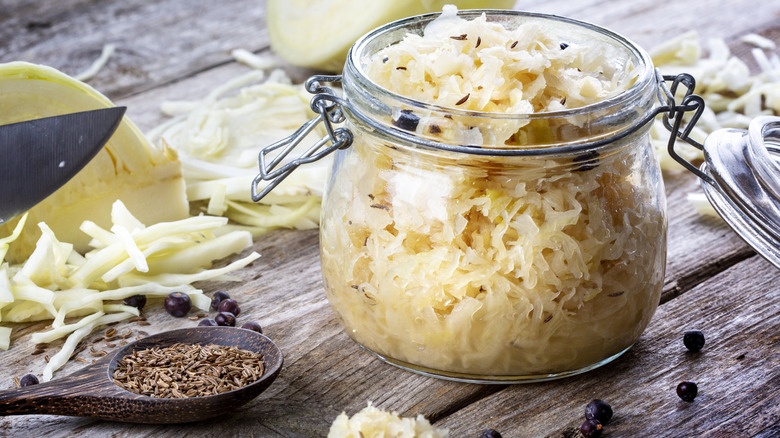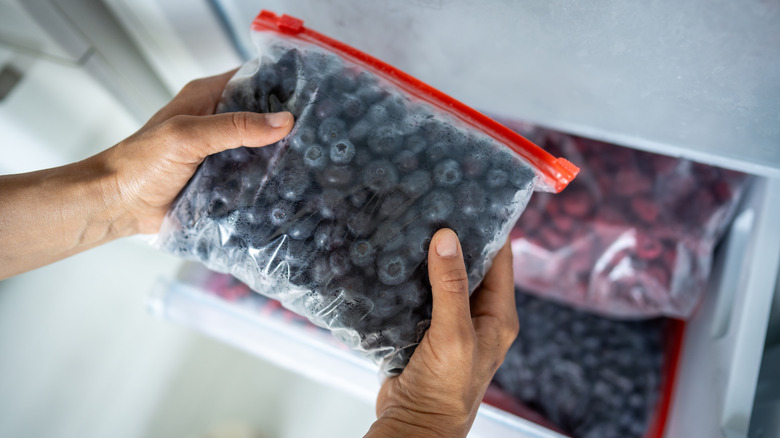Why Freezing Sauerkraut Is A Major Mistake
In today's culinary landscape, we are seeing fermented foods like sauerkraut, and kimchi — a beloved staple in Korean cuisine — finally getting their much-deserved recognition. These traditional foods, which have been staples in Eastern cultures for centuries, and are valued for their role in aiding and maintaining optimum gut health, are being acknowledged by the Western world. In addition to their valuable probiotic properties, fermented foods can also help improve immune function. As such, fermented vegetables have become a go-to addition to meals for health-conscious consumers.
Sauerkraut, a fermented cabbage dish that is actually believed to have originated in China before making its journey into becoming a staple in Eastern and Northern European households, is an excellent condiment to add to your burgers, sandwiches, or even a salad for a desirable tang and a dose of probiotic goodness. However, preserving these beneficial properties requires proper storage and freezing may seem like the no-brainer approach to extend its shelf life. On the contrary, it's counterproductive and can ruin this fermented food's most valuable benefits. This is because when water freezes, it forms ice crystals that can physically rupture bacterial cell walls. This cellular destruction results in the loss of any beneficial probiotic bacteria that make sauerkraut a healthy food choice. Additionally, thawing frozen sauerkraut yields an unappealing, rubbery texture as opposed to the satisfying crunch we know and desire.
To freeze or not to freeze, that is the question
When preserving foods and their nutrients, freezing is an excellent choice to preserve freshness, quality, and nutrient content. However, not all foods are created equally and there are several food items of which the quality deteriorates when frozen. Probiotic and fermented foods for one, lose their vital health-promoting bacteria when frozen. You should also avoid freezing foods with high water content like lettuce, cucumber, and watermelon, which become mushy when thawed. Similarly, freezing fried foods can cause them to lose flavor, and the craveable crunch of fried foods.
However, freezing can be a fantastic option when it comes to preserving many foods, like varieties of fresh produce without a high water content. Bread, a pantry staple often thrown out, can be preserved without ruining its quality by freezing. Freezing bread halts the staling process by stopping the chemical reaction called starch retrogradation which makes bread firm and dry. To defrost, all you need is an oven, air fryer, or even a microwave.

